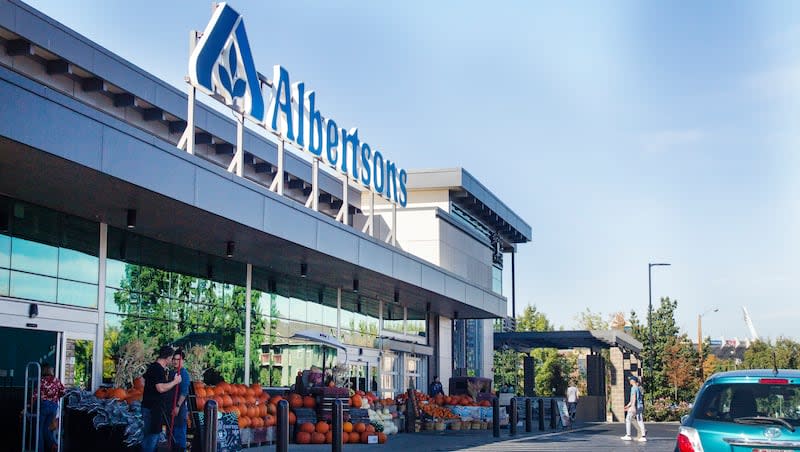FTC sues to block Kroger-Albertsons merger, citing threats to competition and rising grocery prices

On Monday, the Federal Trade Commission (FTC) filed a lawsuit in the U.S. District Court of Oregon against grocery giants Albertsons and Kroger, which owns Smith’s Food and Drug store.
The FTC, along with attorney generals from eight different states and Washington D.C., issued the lawsuit to block the two grocery companies from merging, “saying the $24.6 billion deal would eliminate competition and lead to higher prices for millions of Americans,” according to the Associated Press.
The two grocers, which employ predominantly unionized workers, have over 700,000 workers, nearly 5,000 stores and more than $200 billion in sales, announced the merger in 2022 because they believed it would enhance their competition against grocery giants like Walmart and Amazon.
Lawmakers oppose the merge
“This supermarket mega merger comes as American consumers have seen the cost of groceries rise steadily over the past few years. Kroger’s acquisition of Albertsons would lead to additional grocery price hikes for everyday goods, Henry Liu, director of the FTC’s Bureau of Competition, told CNN.
“Unions, small grocers and a coalition of Democrats and Republicans on Capitol Hill, including Democrat Elizabeth Warren of Massachusetts and Republican Mike Lee of Utah, also strongly opposed the merger from the start,” CNN added.
The potential merger of the two grocery companies, lawmakers fear, would create a “Grocery empire” of over 4,000 stores and make groceries even more unaffordable than they already are.
Grocery prices are historically high
Over the last four years, grocery prices have surged by 25%, exceeding the general inflation rate of 19% within the same timeframe, The Washington Post reported.
“I think people are waiting for prices to return to what they call ‘normal’ — and with the exception of a few things, like eggs — we’re not going to see that. We’re going to see prices stabilize, and that’s likely it,” Dawn Thilmany, an agricultural economist and professor at Colorado State University, told The Washington Post.
Although the FTC has criticized the merger, saying it will remove competition with other grocery companies concerning pricing, Kroger announced that the companies would continue to lower the price of groceries, which they claimed they have been doing since 2003.
“We are disappointed that the FTC continues to use the same outdated view of the U.S. grocery industry it used 20 years ago, and we look forward to presenting our arguments in court,” an Albertsons spokesperson added, per Reuters.

